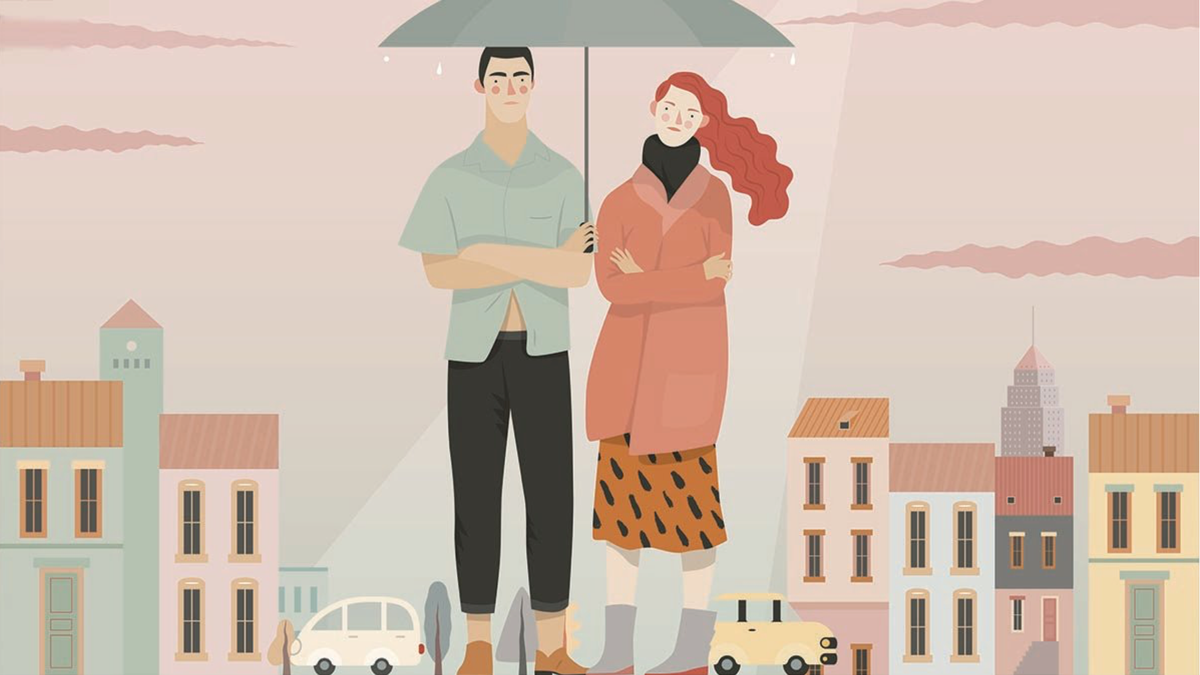Why does weather change how we feel?

It's October, which means it's raining. At least in the UK anyway. For the past few weeks, the heavens have opened, and for days on end, they haven't stopped. Cue blue feelings.
But why? Why does the weather have such an oversized influence on our sense of well-being? Like so much of mental health, it's complicated.
Spring birds 🐦
For one, we know the weather, or rather the changing seasons, affect animals. In spring, as the days get longer, male birds experience a surge in testosterone, encouraging them to fight over territory and defend them with the territorial song.
Men appear to go through something similar with their own testosterone levels. Their annual cycle peaks in autumn, which some researchers believe is a hangover from our cave-dwelling days. Children born in spring and summer were more likely to survive those early few months than those born in the harder months of winter.
We also know that as winter draws closer, many of us experience wintertime depression or seasonal affective disorder, as days grow shorter and our bodies struggle to take in enough vitamin D.
But beyond that, our mood's relationship with the weather is less biological, and more psychological, say researchers. Hotter weather tends to increase levels of aggression because a) we feel more agitated because we're too warm, and b) we're more likely to interact with others in public spaces.
A sudden downpour can make us feel sad because plans for a day outside are suddenly cut short. But that's where our simple relationship with the weather ends.
A sunny disposition ☀️
It's a common assumption that sunny weather makes us happier. But a study by US psychology researcher Matthew Keller and colleagues showed that beneficial effects of warm and sunny conditions on mood were only seen in people who had spent more than 30 minutes outdoors that day.
Good weather had negative effects on mood for people confined indoors, who perhaps gazed enviously outside at the solar fun they were missing.
A recent study found that half of the 415 adolescents studied weren’t really impacted much at all by changes in the weather, while the other half was. The research went so far as to point out four weather personality types:
- Summer lovers (17%) – “Happier, less fearful, and less angry on days with more sunshine and higher temperatures. More hours of precipitation was associated with less happiness and more anxiety and anger.”
- Summer haters (27%) – “Less happy and more fearful and angry when the temperature and the percentage of sunshine were higher. With more hours of precipitation, they tended to be happier and less fearful and angry.”
- Rain haters (9%) – “Angrier and less happy on days with more precipitation. By comparison, they were more happy and fearful, but less angry, on days with more sunshine and higher temperatures.”
- Unaffected by weather (48%) – Largely unimpacted by changes in the weather.
Despite this, there is surprisingly little evidence that climate has any reliable impact on mood or mental health. The reason? We are very good at adapting to the particular conditions in which we find ourselves.
Looking at the World Happiness Report, the top 10 happiest countries are dominated by citizens in cold, wet countries - Finland, Denmark, Norway, Iceland, Sweden, Switzerland, Canada - whereas the world's saddest citizens are overwhelmingly in hot, sunny places.
While that is a slight oversimplification, what researchers say is that a shower or sunshine can affect us in the short term, but we're surprisingly good at getting past weather and looking at the bigger picture.
Ok, where can I learn more? 📚
- What explains why the Nordic countries are constantly among the happiest in the world? - A chapter from the World Happiness Report that everyone should read.
- Seasonal Affective Disorder - The Royal Institution has a great piece on why winter causes Seasonal Affective Disorder.
- Very British Weather - I love this book - the Met Office shares 170 years of weather watching to create this part trivia, part guide, part myth-busting book that's perfect for a rainy day.





